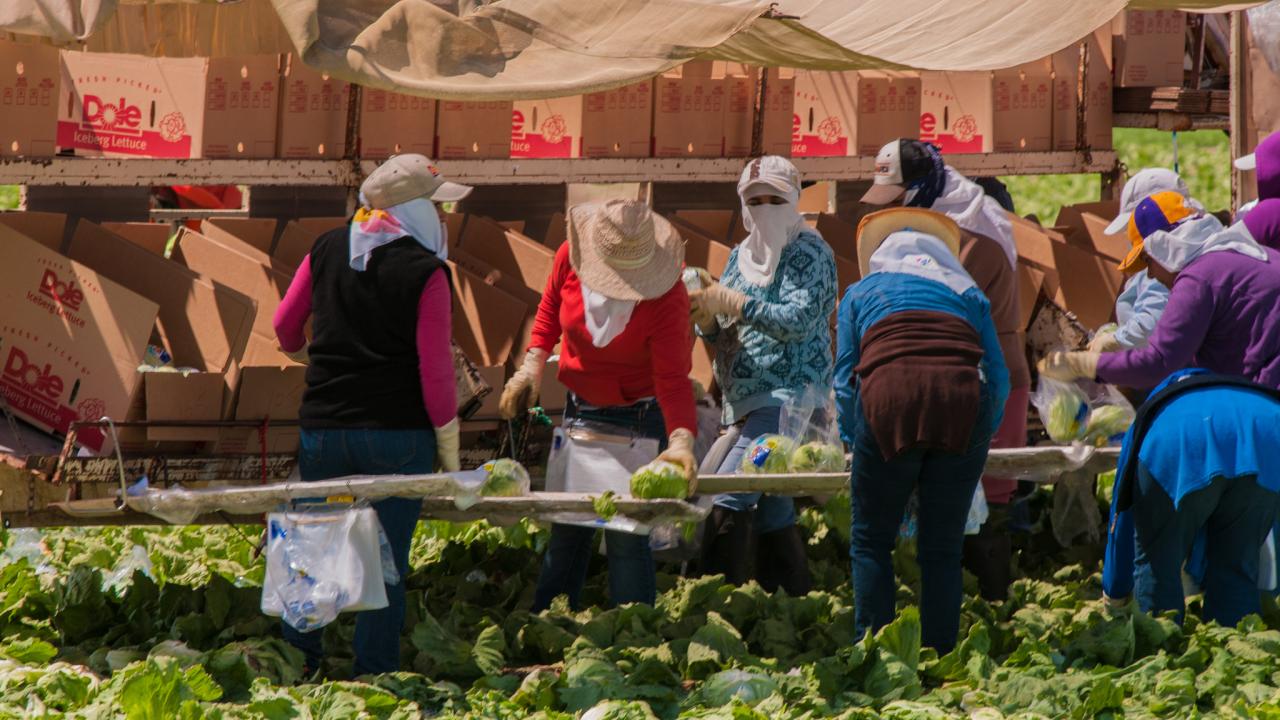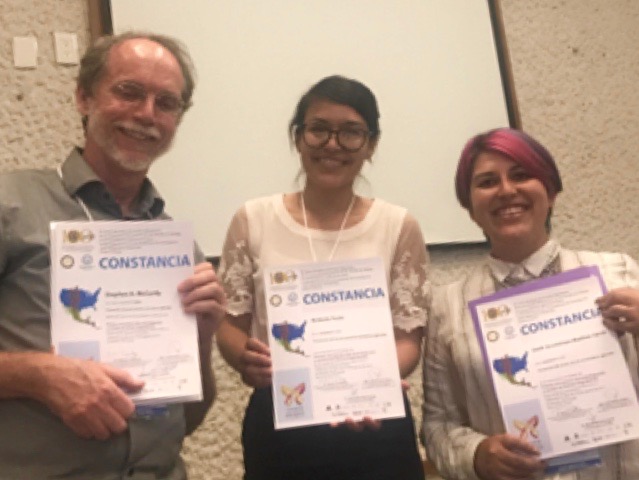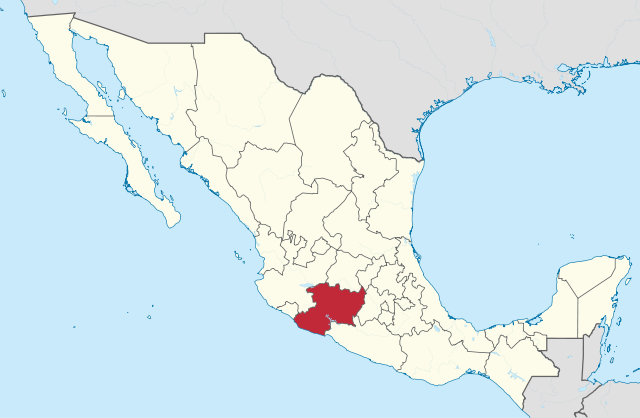
WCAHS Presents Work at the Migration Health Meeting in Morelia, Mexico
The WCAHS Outreach & Education team traveled to Morelia, Mexico, this past August to present their recent work on addressing sexual harassment in the agricultural workplace. They attended the Primer Encuentro de Investigación y Acción en Temas Migratorios (First Colloquium on Research and Practice in Migration).
The project consists of parallel investigations of the extent and effects of workplace sexual harassment among farmworkers in California’s Central Valley and in Morelia, Michoacán, Mexico.
Study findings will inform policy recommendations as well as the development and evaluation of effective educational programs.
A comparative study between Mexico and California
The work compares findings between Mexico and California. Michoacán is an excellent site for the Mexican component, as the state is at the forefront of sending migrant workers to the US and Canada.
Stephen McCurdy, MD, Director of WCAHS Outreach & Education, is the principal investigator for the California part of the project, while Dra. María Elena Rivera Heredia and Lizeth Guadalupe Martínez Servín of the University of Michoacán San Nicolás de Hidalgo are leading the Mexican part.

Rivera Heredia and Martínez Servín are experts in characterizing effects of migration, including physical, mental, and emotional health, especially among sending families and returnees.
Innovative work focuses on both sexes, rather than just women
The study provides quantitative information on occurrence, attitudes, and perspectives relating to workplace sexual harassment for both men and women farmworkers. This is different from other studies that have mostly involved qualitative work with a primary focus on women.
McCurdy notes that, “the historical focus on women is understandable because women are the main victims of men perpetrators of sexual harassment. However, sexual harassment can involve either sex in the roles of victim and harasser.”
Moreover, effective policy and educational approaches must engage men as well as women.
The workplace environment is critical for establishing norms of behavior and supporting a healthy work force, yet little information is available on administrative resources and features of the agricultural workplace.
Common goal, differing challenges

The Morelia meeting provided an excellent opportunity for the two teams to share successes and challenges with each other as well as with the conference’s 250+ national and international participants. While the common goal is to reduce the frequency and burden of workplace sexual harassment in agriculture, the study has encountered differing challenges between California and Mexico.
The California team has been fortunate to work with a migrant community that knows and trusts the investigators, is relatively easily accessed through the Yolo County Migrant Housing Centers, and mostly speaks Spanish.
In contrast, non-Spanish speaking indigenous groups are more common among agricultural workers in Michoacán, and the Mexican team has had to rely on oral translation for many interviews.
Positive aspects of the meeting and study
As part of the Morelia meeting, McCurdy, along with epidemiology graduate student Kimerly Prado, who is engaged on the project as her doctoral work, gave a workshop on preventive measures for sexual harassment in the agricultural workplace.
Prado shared her experience and insights as a first-generation college (and now graduate) student from a family of El Salvadoran refugees working on the project.
“This has been a great educational experience,” says Prado. “My classroom learning has shown me how broadly applicable epidemiology is in public health. I am really excited to be able to apply my theoretical learning in a practical way.”
Teresa Andrews, WCAHS Outreach & Education Specialist, also presented at the conference, discussing successful outreach and education methods for agricultural workers. As study findings emerge, outreach will become increasingly important to inform the development of policy recommendations and educational initiatives.
Support for binational research
The project is sponsored by the Programa de Investigación en Migración y Salud (Research Program in Migration and Health) administered through the Health Initiative of the Americas at the University of California, Berkeley. Collaborating agencies and groups include the Mexican Ministry of Health and the Consejo Nacional de Ciencia y Tecnología (National Council for Science and Technology). WCAHS has also provided important support through its Emerging Issues Program and small grant program.
